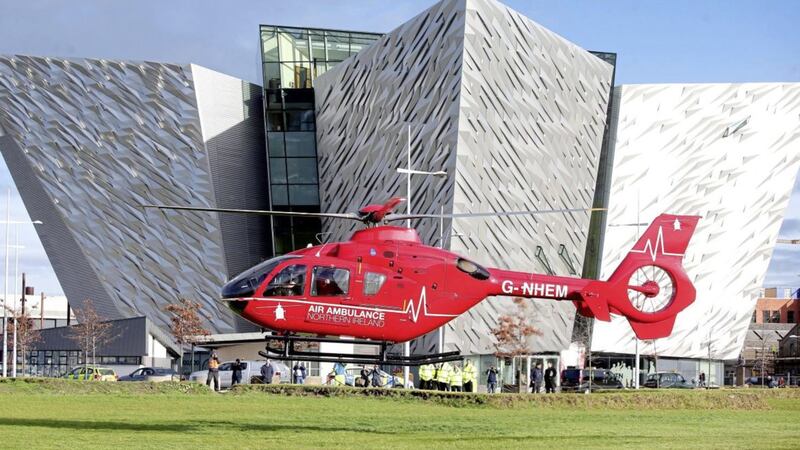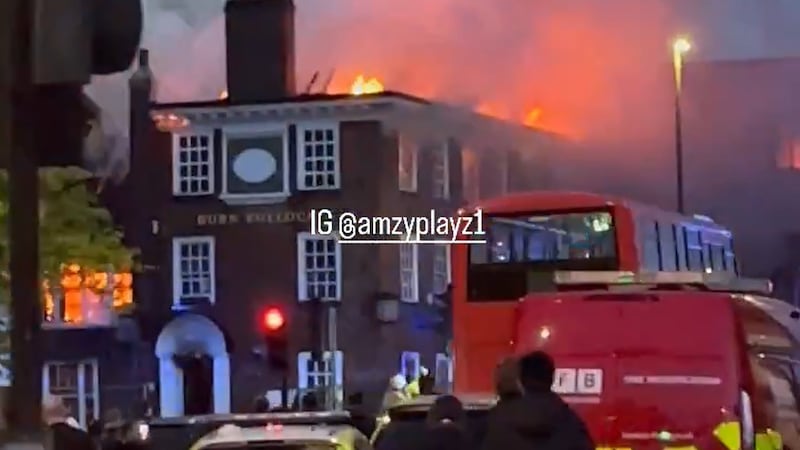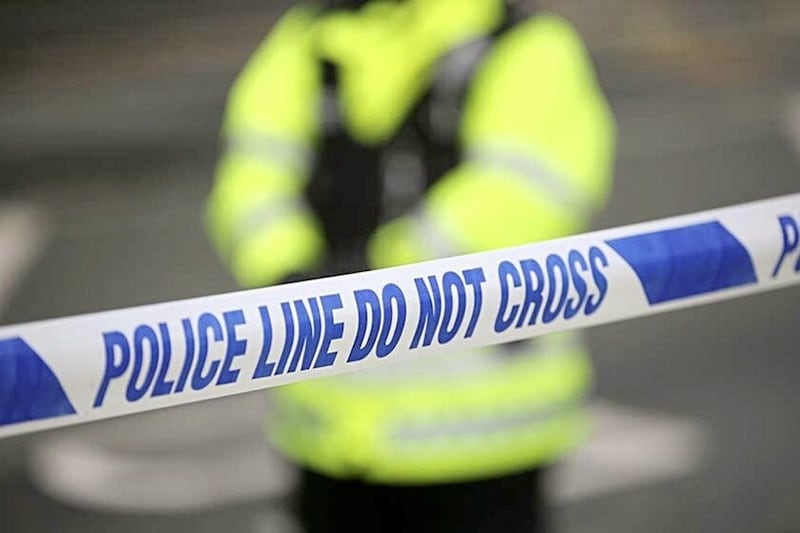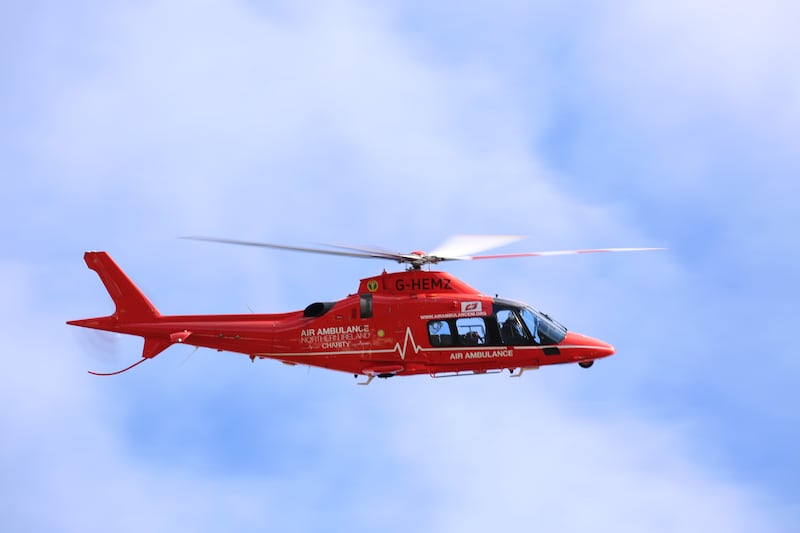THE annual running costs of an air ambulance for Northern Ireland will be split evenly between the health service and the ambulance's charity partner, the health minister has said.
The yearly bill for the Helicopter Emergency Medical Service (HEMS) is expected to be around £2 million.
Health Minister Michelle O'Neill said: "It is envisaged that the HEMS charity partner will provide the aviation side of the service and fund the non-medical costs of HEMS, at an estimated cost of approximately £1m.
"The medical staff and equipment will be provided and funded by Health and Social Care services, also at an estimated cost of approximately £1m. To date no capital costs have been incurred."
Air Ambulance NI is the official charity partner for the service.
Mrs O'Neill said that pending the completion of a business case, she will make an announcement about the location of a base for the air ambulance service "in the near future".
The figures were released by the minister in response to a written Assembly question from Alliance South Antrim MLA David Ford.
In his budget in March 2016, former Chancellor George Osborne announced that £4.5 million, arising from banking fines, would be used to help establish the service.
In September, the minister said she had made £1.25 million available to cover start-up costs, including recruitment and training and for the purchase of medical equipment.
Although details on how the air ambulance will be staffed remain unclear, Mrs O'Neill said that the annual cost of having a doctor on board would be "in the region of £435,000", while the estimated expense of providing a helipad at the Royal Victoria Hospital is £750,000.
"It is expected that the helipad will be operational approximately nine months after business case approval however the operational timescale may be impacted by lead times on specialist fire fighting equipment."
In December, it emerged that flying doctors from around the world had written to Mrs O'Neill to express concern that the new service will not have a doctor on board when it is launched.








